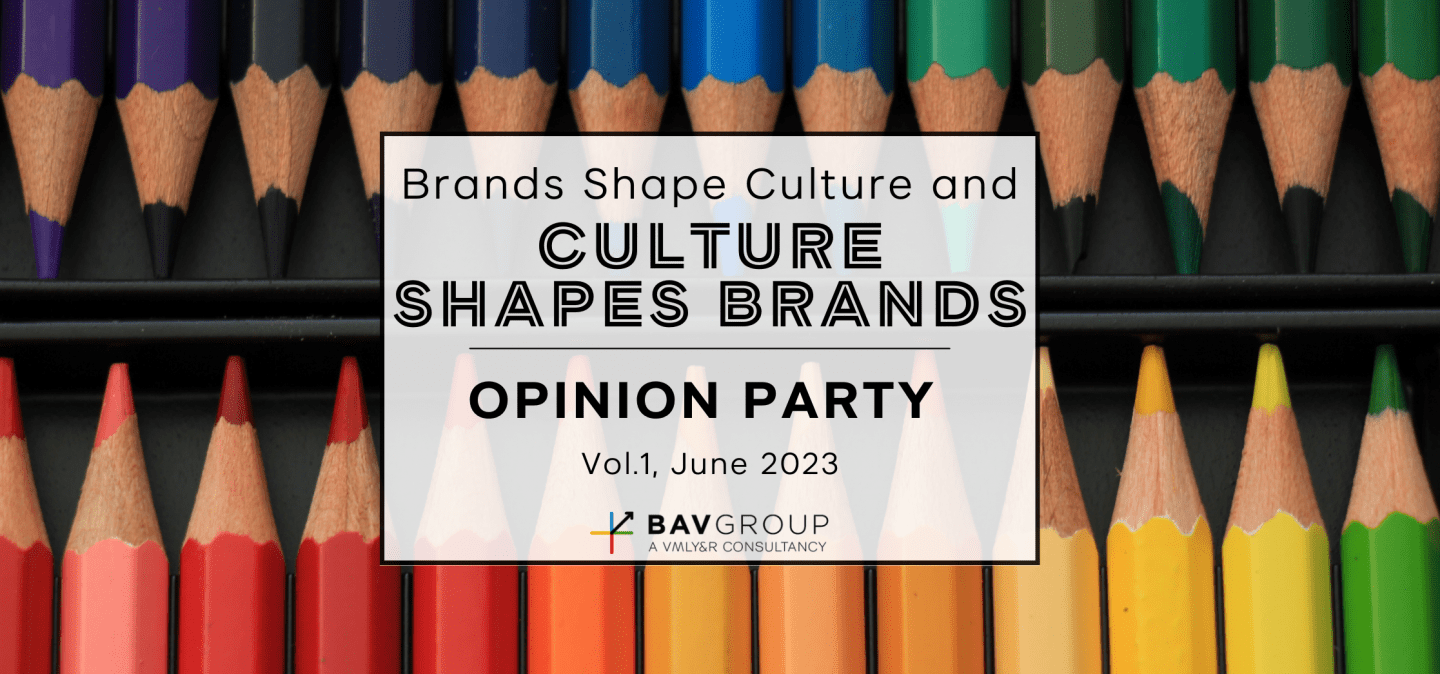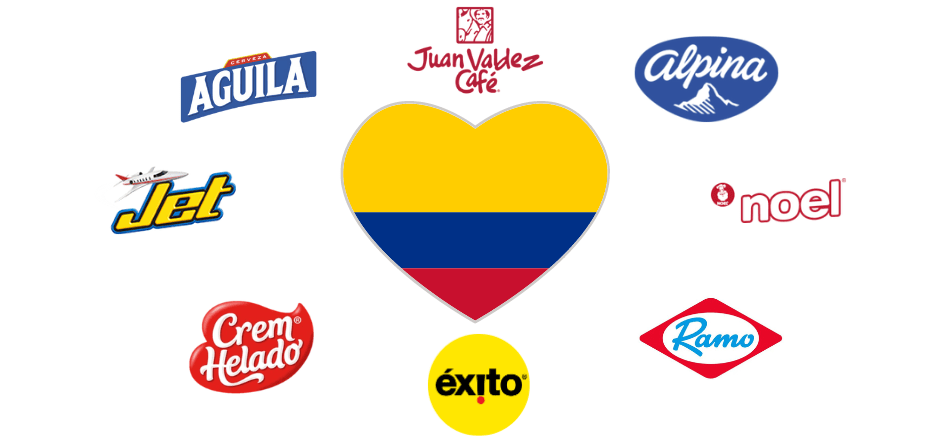Culture Shapes Brands and Brands Shape Culture
07.27.2023

Brands and culture are intertwined. It's common to relate McDonald’s to the United States, Bimbo to Mexico, Samsung to South Korea, Chanel to France, and BMW to Germany. Brands become part of the cultural identity and can be a powerful medium to connect people to a place and help them feel like they belong. That's the beauty of branding the ability to evoke feelings, emotions, and ideas in people's minds.
As a Colombian, I see brands like Juan Valdez, Alpina, Colombiana, Noel, Ramo, El Éxito, Crem Helado, Arturo Calle, Jet, and Aguila and immediately taste, smell, and feel at home. My relationship with those brands transcends functionality. Yes, they are high-quality brands, but the reason behind that affection is more emotional than rational. At BAV Group, we study the cultural role of brands and how people relate to them. These Colombian brands are in the top 10% of the relevance pillar, indicating that they meet people's needs and are perceived as more friendly, charming, kind, social, and cool than the 85% of brands tracked in that country. The top 5 perceptual dimensions of these brands are also core to Colombia as a country brand.

This can be seen in many countries around the world such as the United States, as an example of a drastically different culture. The US is a country perceived as a leader, best brand, distinctive, progressive, and committed to inclusion. Brands born in the United States that have a strong cultural connection with the country are at the top of the ranking in these attributes. Brands such as Microsoft, Amazon, Disney, Target, Levi's and Tide are some of these examples. They are not only in the top 10% of the most relevant brands but also among the most well-regarded brands in the country. In a country like the United States, where excellence and performance are at the forefront, brands behave similarly to meet people's expectations. This leads to higher levels of emotional commitment between Americans and these brands plus contributes to a sense of belonging and shared identity among Americans.
Brands say a lot about the culture, and culture says a lot about the brands. Brands can shape our perceptions of beauty, success, and happiness and impact how we interact with each other and the world around us. By understanding the relationship between brands and culture, we can gain insights into that culture's beliefs, attitudes, and traditions. Think about the county you grew up in, the brands that surrounded you, and how that impacted what you are and what that culture is today.
So, is the country's culture shaping your brand, or is your brand shaping culture and country? How does your brand messaging and branding is impacting customers’ sense of belonging and shared identity? How can your brand influence culture and help create a positive inclusive sense of national identity?
Want to understand how your brand is impacting culture?
Contact us to schedule a 30 minute complimentary consultation.
Author: Natalia Restrepo
Natalia is a Director at BAV Group. She is a Latin American mind passionate about understanding cultures, people's minds, and behaviors. With a structured yet creative approach, she brings a unique perspective to the conversation.
Connect with Natalia on LinkedIn.
Opinion Party (Vol 1): Belonging
This article is from the first issue of "Opinion Party" from BAV Group, a collection of points of view that focused on embracing the unknown, trusting ourselves and others, and ultimately a body of work that helps us all to connect around topics that unite us rather than divide us. Explore this, and the rest of the articles, to see how our authors have taken their unique experiences and written informative and timely pieces on the intersection of brands and belonging in today’s culture.
